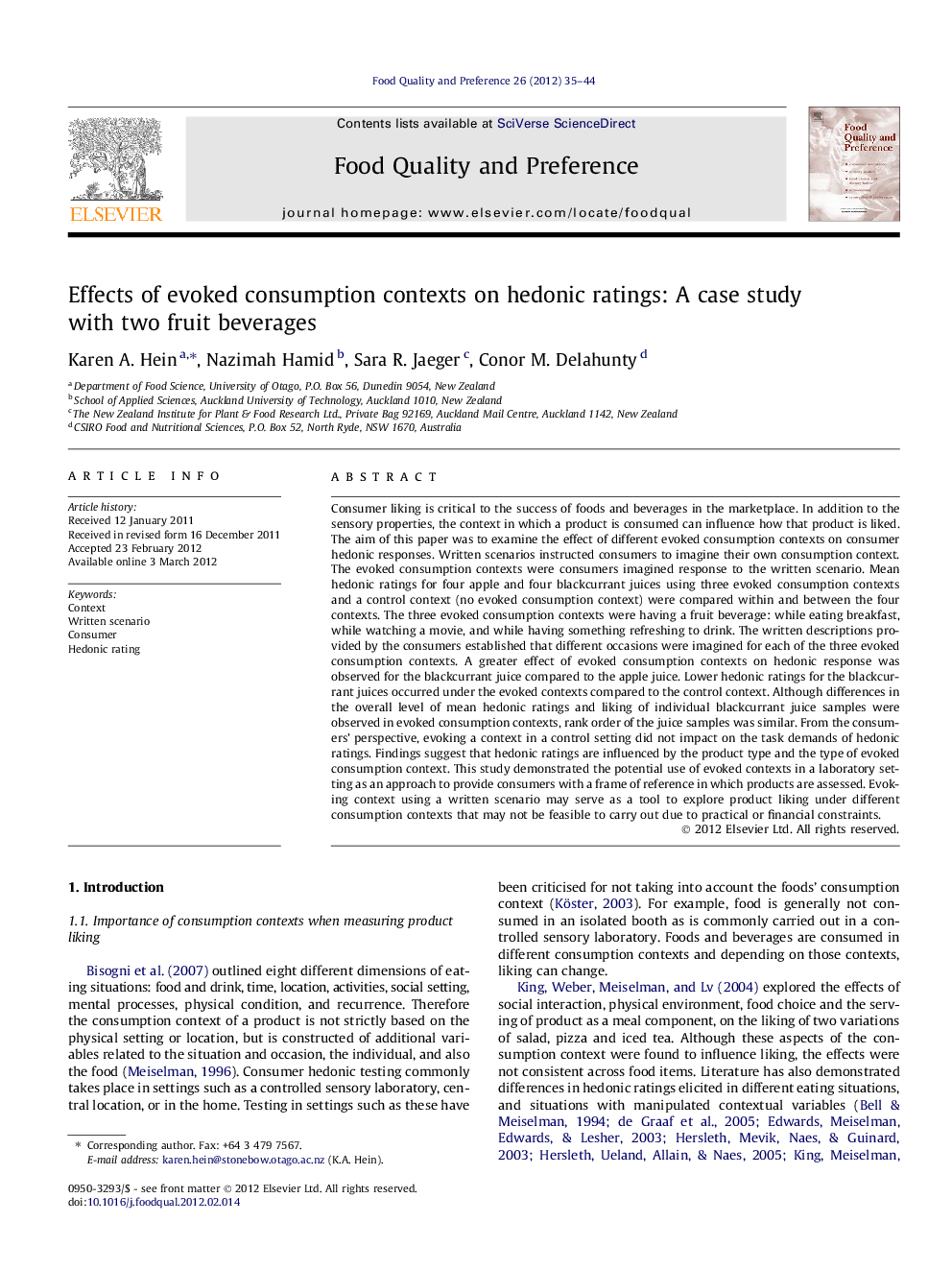| Article ID | Journal | Published Year | Pages | File Type |
|---|---|---|---|---|
| 4317499 | Food Quality and Preference | 2012 | 10 Pages |
Consumer liking is critical to the success of foods and beverages in the marketplace. In addition to the sensory properties, the context in which a product is consumed can influence how that product is liked. The aim of this paper was to examine the effect of different evoked consumption contexts on consumer hedonic responses. Written scenarios instructed consumers to imagine their own consumption context. The evoked consumption contexts were consumers imagined response to the written scenario. Mean hedonic ratings for four apple and four blackcurrant juices using three evoked consumption contexts and a control context (no evoked consumption context) were compared within and between the four contexts. The three evoked consumption contexts were having a fruit beverage: while eating breakfast, while watching a movie, and while having something refreshing to drink. The written descriptions provided by the consumers established that different occasions were imagined for each of the three evoked consumption contexts. A greater effect of evoked consumption contexts on hedonic response was observed for the blackcurrant juice compared to the apple juice. Lower hedonic ratings for the blackcurrant juices occurred under the evoked contexts compared to the control context. Although differences in the overall level of mean hedonic ratings and liking of individual blackcurrant juice samples were observed in evoked consumption contexts, rank order of the juice samples was similar. From the consumers’ perspective, evoking a context in a control setting did not impact on the task demands of hedonic ratings. Findings suggest that hedonic ratings are influenced by the product type and the type of evoked consumption context. This study demonstrated the potential use of evoked contexts in a laboratory setting as an approach to provide consumers with a frame of reference in which products are assessed. Evoking context using a written scenario may serve as a tool to explore product liking under different consumption contexts that may not be feasible to carry out due to practical or financial constraints.
► The effect of different evoked consumption contexts on consumer hedonic responses for two fruit beverages was explored. ► Three different consumption contexts were evoked using written scenarios in the laboratory test setting. ► Evoking consumption context influenced hedonic responses for apple and blackcurrant juices. ► From the consumers’ perspective, evoking a context in a control setting did not impact on the task demands of hedonic ratings. ► Findings suggest that hedonic ratings are influenced by the product type and the type of evoked consumption context.
